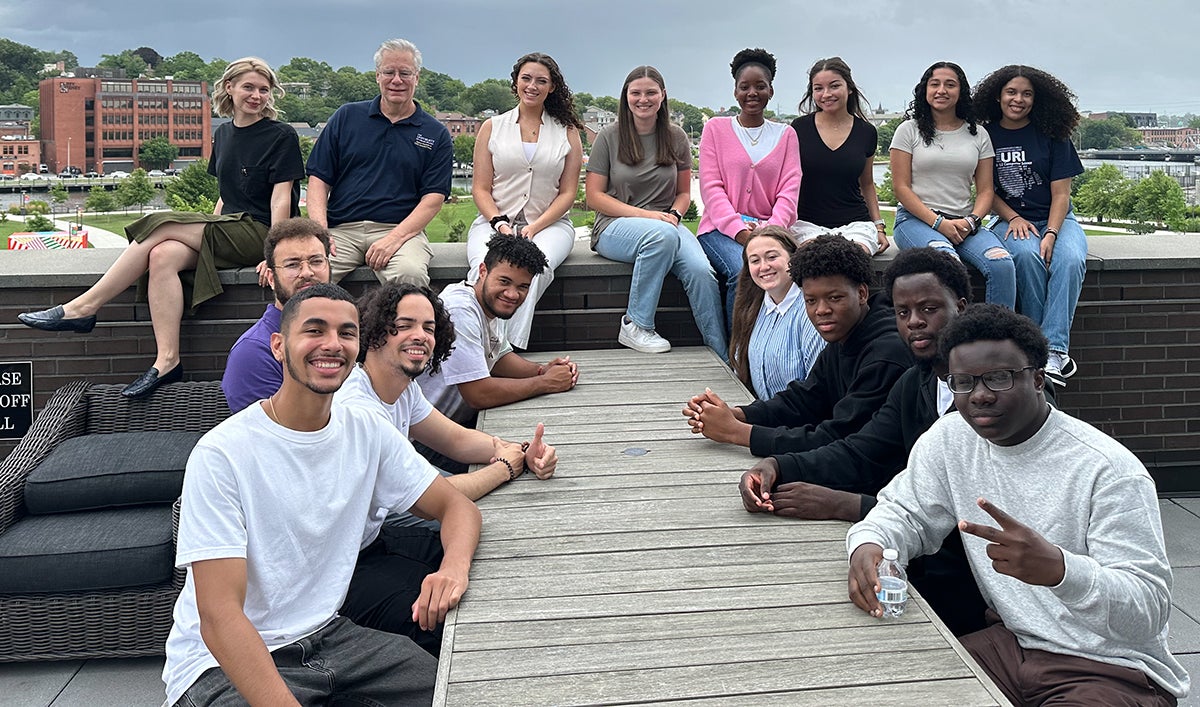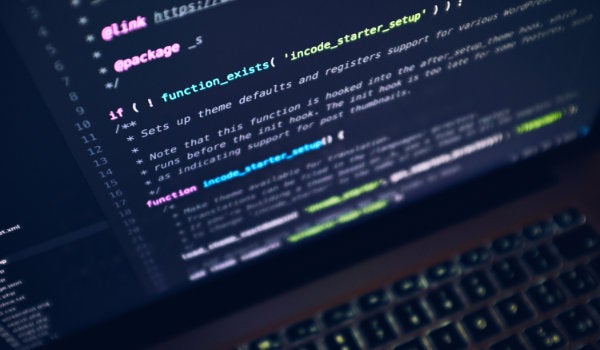
Welcome to CSta
We combine Computer Science, Statistics, AI, Data Science, and Cybersecurity to enhance multidisciplinary learning and research for undergrads and grads. Cross campus and industry collaborations involve faculty, students, scientists, artists, health care researchers, historians, and engineers.
Undergraduate & Graduate Courses
See our courses in Computer Science, Statistics, Data Science, and Cybersecurity ranging from computing foundations to theory and statistics to systems and artificial intelligence.
coursesAnnouncements
 [Talk] Mike Conti: Analysis of Early Interventions to Retain Underrepresented Students in Computer Science (2/19/2026) - When: Friday, February 27, 3:00 PM Where: Tyler 055 Abstract Computer science, like many STEM disciplines, faces persistent challenges in recruiting and retaining women and individuals from racially and ethnically minoritized backgrounds. This study examines whether targeted interventions can produce sustained improvements in academic performance and sense of belonging among these underrepresented groups. By analyzing […]
[Talk] Mike Conti: Analysis of Early Interventions to Retain Underrepresented Students in Computer Science (2/19/2026) - When: Friday, February 27, 3:00 PM Where: Tyler 055 Abstract Computer science, like many STEM disciplines, faces persistent challenges in recruiting and retaining women and individuals from racially and ethnically minoritized backgrounds. This study examines whether targeted interventions can produce sustained improvements in academic performance and sense of belonging among these underrepresented groups. By analyzing […]- [Talk] Efficient Gaussian Process Surrogates for Blackbox Optimization and Posterior Approximation (2/18/2026) - When: Friday, February 20, 11:00 AM Where: Pharmacy 240 Abstract In this talk, we explore efficient Gaussian process surrogate modeling in two distinct contexts: bandit optimization and blackbox posterior approximation. For optimization, we propose novel noise-free Bayesian optimization strategies that incorporate a random exploration step to enhance the accuracy of Gaussian process surrogate models. The […]
- [News] Hack@URI to hold Hackathon Weekend (2/13/2026) - Hack@URI will hold a Hackathon Weekend on Saturday, February 21 and Sunday, February 22. Hack@URI says its mission is to bridge the gap between classroom learning and real-world experience, and organizers say they hope to inspire innovation and problem-solving and connect participants with the Rhode Island tech and creative community. The event will start at […]
 [Talk] Travess Smalley: Generative Systems in Art & Design (2/12/2026) - When: Friday, February 20, 3:00 PM Where: Tyler 055 Abstract Generative Systems in Art and Design is an artist talk that surveys Travess Smalley’s generative practice, including scripting in Adobe Photoshop, creative coding, and building small creative software. It also looks at ways software-based systems can be translated into physical prints and exhibition work. The […]
[Talk] Travess Smalley: Generative Systems in Art & Design (2/12/2026) - When: Friday, February 20, 3:00 PM Where: Tyler 055 Abstract Generative Systems in Art and Design is an artist talk that surveys Travess Smalley’s generative practice, including scripting in Adobe Photoshop, creative coding, and building small creative software. It also looks at ways software-based systems can be translated into physical prints and exhibition work. The […] [Award] Faculty publication awarded IEEE Editor’s Choice (2/12/2026) - IEEE Access designated Game Theoretic Mixed Experts for Combinational Adversarial Machine Learning by Kaleel Mahmood, Ethan Rathbun, Ronak Sahu, Marten Van Dijk, Sohaib Ahmad, and Caiwen Ding as an Editor’s Choice article. The publication is currently listed on the Featured Articles page.
[Award] Faculty publication awarded IEEE Editor’s Choice (2/12/2026) - IEEE Access designated Game Theoretic Mixed Experts for Combinational Adversarial Machine Learning by Kaleel Mahmood, Ethan Rathbun, Ronak Sahu, Marten Van Dijk, Sohaib Ahmad, and Caiwen Ding as an Editor’s Choice article. The publication is currently listed on the Featured Articles page. [Talk] Lesia Semenova: Which Model Should You Trust When Many Models Fit? (2/11/2026) - When: Thursday, February 12, 12:00 PM Where: Bliss 190 Abstract In practice, there is rarely a single “golden” answer. In this talk, I argue that trustworthy ML should be set-valued: instead of validating a single model, we should reason over the Rashomon set (the set of models that meet a performance criterion). I’ll present a […]
[Talk] Lesia Semenova: Which Model Should You Trust When Many Models Fit? (2/11/2026) - When: Thursday, February 12, 12:00 PM Where: Bliss 190 Abstract In practice, there is rarely a single “golden” answer. In this talk, I argue that trustworthy ML should be set-valued: instead of validating a single model, we should reason over the Rashomon set (the set of models that meet a performance criterion). I’ll present a […]




